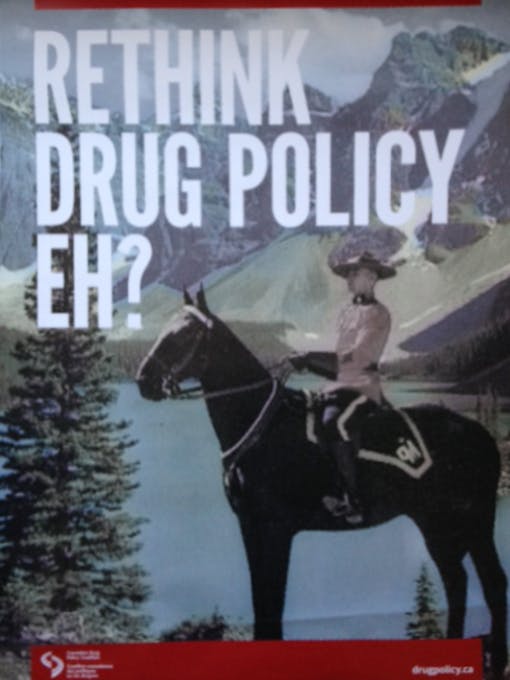The DPA Reform Conference in Washington D.C. wrapped up over the weekend, with discussions turning towards Canada’s promise to legalize, the shelf life of cannabis prohibition, and Uruguay’s trailblazers paving a path for other countries to follow. Catch up on the discussions that concluded this year’s gathering by checking out our roundup.
MAPS and Its Well-Earned Reputation
Rick Doblin, founder of the Multidisciplinary Association for Psychedelic Studies (MAPS), earned one of the biggest laughs of the DPA Reform Conference on Saturday. Doblin and MAPS have famously struggled for years to get federal permission to grow cannabis for research. So when he announced a closing-night bonfire on the National Mall, Doblin assured everyone the event had been properly sanctioned by the National Park Service. “We at MAPS are known for our ability to obtain permits from the federal government,” he said.
The True North Strong and (Finally?) Free
No international contingent arrived with more optimism than the Canadians, who came to Washington D.C. soon after electing pro-legalization Prime Minister Justin Trudeau. (They also offered the conference’s best poster.)

The Canucks and their friends celebrated at the chic D.C. boîte Tonic on Friday night, clinking lager bottles and mulling over what might come next. Shea Dewar of the Canadian Drug Policy Coalition was confident Trudeau would come through. “He made quite a public promise to legalize during the campaign, and it’s going to be really difficult to go back on that now that he’s in office,” he said.
Dewar added that the most likely route would be nationwide decriminalization followed by province-by-province decisions about cannabis regulation. Some of Dewar’s colleagues were already thinking ahead to some of the challenges of legalization, such as finding a pathway into legality for black market cannabis growers and sellers. “It’s not just a legal issue for them,” one said. “It’s their livelihood.” It’s also a good problem to have.
Pondering Prohibition, and Its End
One of Saturday’s liveliest discussions considered the idea of prohibition — where it came from, the harm it’s done, and what might replace it. “It started with alcohol in the early 1900s,” said Robin Room, director of the La Trobe University Centre for Alcohol Policy Research in Melbourne, Australia. “Drugs were really a side issue.”
Alcohol prohibition utterly failed, but that didn’t stop the idea of the punitive ban. The Puritan ethic, so fundamental to American culture, helped drive the prohibition model, said Craig Reinarman, sociology professor at UC Santa Cruz. “We tell ourselves we’re a nation of self-made men, and self-control is a large part of that. Substances that loosen that self-control become the object of fear.”
Most agreed that the model does more harm than good. For starters, it doesn’t stop consumption. “And it sets up perverse incentives,” said Reinarman. “Prohibition makes it difficult to understand potency and dosage. There’s no quality control. And it encourages the development of new substances like K2 and Spice, which people find really harmful and dangerous.”
There emerged no one-size-fits-all regulatory model to replace cannabis prohibition, and perhaps that’s the point. Different countries — and maybe even different states — have to regulate according to their own history, culture, and social custom. What’s best for Oregon won’t be best for Uruguay, and vice versa.
Until Next Time…
We’ll conclude with some odds and ends both heard and seen as the conference wound down.
Uruguay always represents well at this conference, and this year was no exception. Dr. Raquel Peyraube, from Montevideo, offered this quote:
“People say to me, ‘You are a doctor! A mom! Not a cannabis user! Why do you want to legalize?’ And I answer, ‘Because I am a doctor, a mom, not a cannabis user’”
The influence of student groups continues to grow. Students For Sensible Drug Policy (SSDP) were front and center at a number of panels, and educators are learning to stop preaching to youth and start collaborating on useful drug education models
After a big showing in Denver two years ago, cannabis companies were conspicuously absent at this year’s conference. We’re not sure why — perhaps they spent their energy and travel budgets on the previous week’s business conference and NCIA anniversary gala in Las Vegas
The past two DPA Reform Conferences have convened, by happy coincidence, in newly legalized cities: Denver and Washington, D.C. The next one will likely end that winning streak. See you in Atlanta in 2017!





